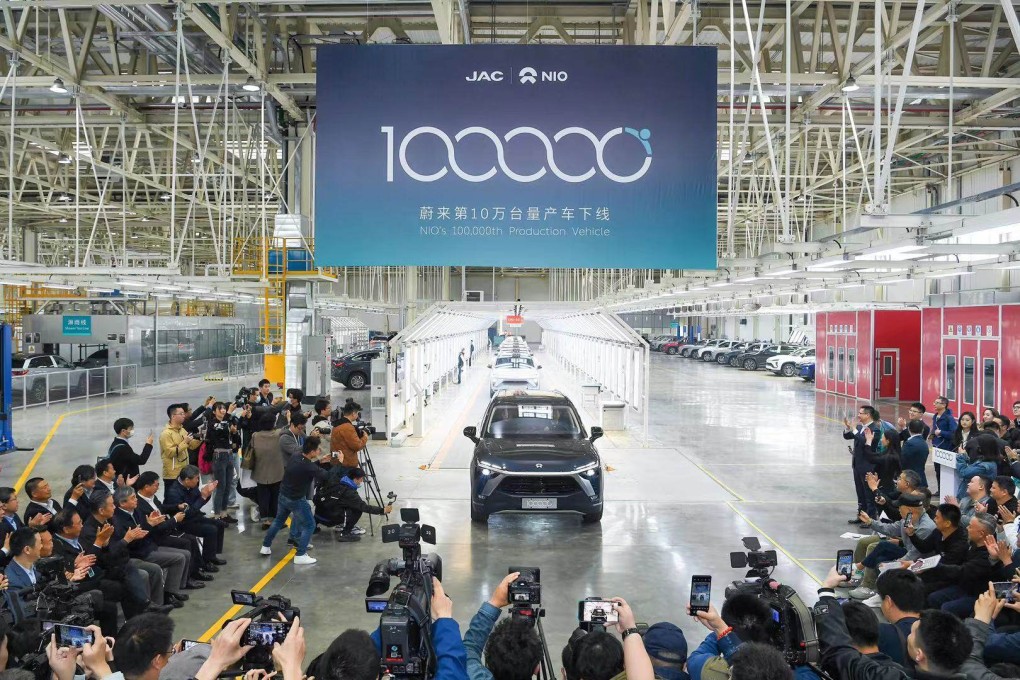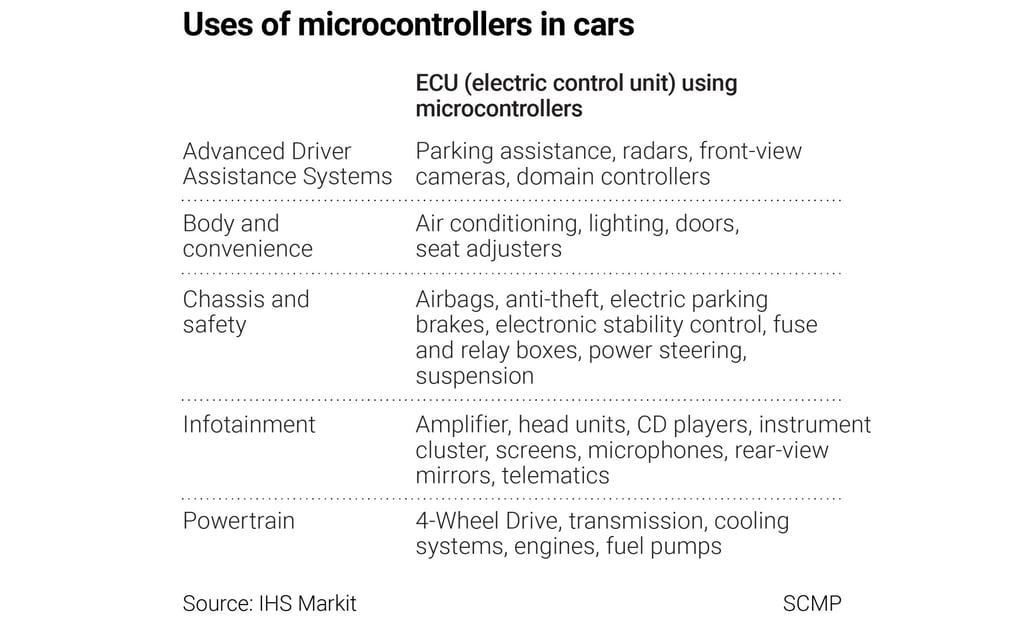NIO may fail to meet second-quarter output goal in its competition with Tesla as global shortage of chips hits home
- NIO may lack the semiconductor stockpile to meet its target of assembling 7,500 electric cars in the second quarter, the carmaker’s founder said after the 100,000th unit rolled off its assembly in Hefei
- The carmaker expects to secure enough chips in the third quarter

The Beijing-based carmaker may lack the semiconductor stockpile to meet its target of assembling 7,500 electric cars in the second quarter, NIO’s founder and chief executive William Li said during a press ceremony in the Anhui provincial capital of Hefei, where the carmaker’s 100,000th unit rolled off the assembly line.
“We still face difficulties in achieving our production goal,” Li said after officiating a ceremony for a blue ES8 sports-utility vehicle (SUV) to come off the production line. “The issue (of chip shortage) remains tough in the second quarter, but it will affect our production only in the near term.”

NIO had to suspend production for five days at the end of March due to the shortage of a US$1 chip. The shortfall may not be as dire, as the carmaker expects to secure enough chips for controlling everything from its onboard entertainment and engine systems to the steering in the third quarter to ensure the smooth running of its assembly, Li said.
Still, a monthly production level of 7,500 vehicles would “fall below optimistic forecasts made at the end of 2020, because the three Chinese competitors of Tesla have showed signs of a big sales jump,” said Tian Maowei, a sales manager at Yiyou Auto Service in Shanghai.